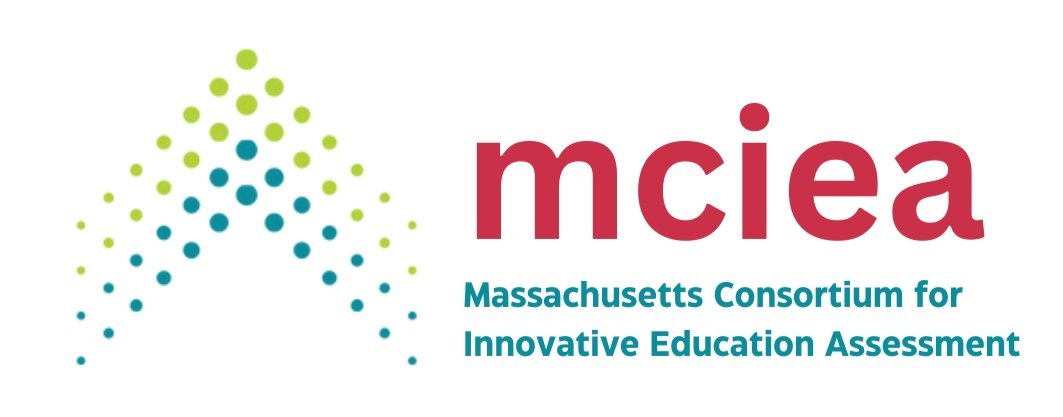“Performance assessments are part of a robust assessment system. They require students to show what they know, rather than select answers from predetermined options on a multiple-choice test.”
Performance Assessment Research
High-quality performance assessment improves teaching and learning.
Deeper Learning
By providing students with authentic, rigorous opportunities to build and demonstrate their knowledge and skills, high-quality performance assessments have the potential to both foster and measure deeper learning, enabling students to master content while also developing skills such as reflection, creativity, and resilience (Guha, 2018).
Performance assessment can reduce achievement gaps and promote more equitable outcomes.
College Attendance
NYPSC students—who are immersed in inquiry-oriented, project-based instruction linked to an innovative system of performance assessment—are more likely to graduate, attend college, and persist in college than their demographically similar peers (Fine & Pryiomka, 2020).
Validity & Task Design
High-quality performance assessments that are aligned to learning goals and standards and scored using clearly defined rubrics are valid and reliable assessments of student learning and are better suited to assessing student competencies in 21st century skills and dispositions than standardized tests (Darling-Hammond, 2017).
21st Century Skills
Performance assessment prepares students for college, careers, and civic life by engaging them in work that promotes critical thinking, problem-solving, and the application of knowledge—essential in a world where routine tasks have given way to skills like innovation and collaboration (Darling-Hammond & Adamson, 2010).
Predictors of Success
Authentic measures of the skills students need to be successful (e.g. components of an admissions process that require students to defend their ideas in writing) are stronger predictors of college success than multiple-choice, standardized tests (Guha et al., 2018).
Scalability
Scaling performance assessment requires an investment. High-quality professional learning opportunities, coaching, and time and resources for coordinating logistics and working with students all contribute to the success of performance assessment initiatives at scale (Maier et al., 2020).
Improved Engagement
Performance assessment fosters student engagement by providing authentic and meaningful learning experiences that improve student attendance and morale (Hantzopoulos et al., 2021)—two critical factors in addressing the current challenges of soaring youth mental health concerns and continued chronic absenteeism.
Accessibility & Equity
High-quality performance assessments enhance accessibility and equity by drawing on students’ lived experiences and cultural assets, engaging them in authentic inquiry, and offering meaningful choices in how they demonstrate their learning (Darling-Hammond & Adamson, 2010).
High-quality performance assessment systems are reliable, valid, scalable, and worthwhile.
Value & Worth
Even though designing, implementing, and scoring performance assessments can be challenging and time-intensive, teachers engaged in the work see value in investing their time and resources in performance assessment (Diaz-Bilello et al., 2024).
Teacher Opportunity
Performance assessment provides teachers with timely evidence of student thinking, enabling teachers to reflect on their instructional practices and use real-time data to inform future curricular and instructional decisions, creating a feedback loop fostering continuous improvement in teaching and learning (Maier, 2020).
Graduation Readiness
Including performance assessments like capstones and portfolios into graduation requirements helps more students meet readiness benchmarks, boosting their confidence in pursuing post-secondary opportunities (Diaz-Bilello & Nath, 2024).
Ensuring Comparability
High rates of comparability within and across districts are attainable, and strategies such as constructing detailed scoring rubrics and guides, field testing tasks, and providing teachers with ongoing training, calibration, and moderation can produce valid and stable results (Darling-Hammond & Adamson, 2010).
References
Darling-Hammond, L. & Adamson, F. (2010). Beyond basic skills: The role of performance assessment in achieving 21st century standards of learning. Stanford, CA: Stanford University, Stanford Center for Opportunity Policy in Education. https://globaled.gse.harvard.edu/files/geii/files/beyond-basic-skills-role-performance-assessment-achieving-21st-century-standards-learning-report_0.pdf
Diaz-Bilello, E. & Nath, K. (2024). Exploring the implications of the expanded graduation menu guidelines: An evaluation of the capstone experience in one high school. Boulder, CO: The Center for Assessment, Design, Research and Evaluation (CADRE), University of Colorado Boulder. https://www.cde.state.co.us/sites/default/files/docs/postsecondary/2024_Exploring%20the%20Implications%20of%20the%20Expanded%20Graduation%20Menu%20Guidelines%20%20An%20Evaluation%20of%20the%20Capstone%20Experience%20in%20One%20High%20School_final%20%28002%29.pdf
Diaz-Bilello, E., Nath, K., & York, A. (2024). Learnings from a large district’s experience with using performance-based assessments to evaluate graduation competencies. Boulder, CO: The Center for Assessment, Design, Research and Evaluation (CADRE), University of Colorado Boulder. https://www.cde.state.co.us/postsecondary/2024cadrecasestudyreport
Fine, M., & Pryiomka, K. (2020). Assessing college readiness through authentic student work: How the City University of New York and the New York Performance Standards Consortium are collaborating toward equity. Palo Alto, CA: Learning Policy Institute. https://learningpolicyinstitute.org/product/assessing-college-readiness-authentic-student-work-report
Guha, R., Wagner, T., Darling-Hammond, L., Taylor, T., & Curtis, D. (2018). The promise of performance assessments: Innovations in high school learning and college admission. Palo Alto, CA: Learning Policy Institute. https://learningpolicyinstitute.org/media/141/download?inline&file=Promise_Performance_Assessments_REPORT.pdf
Maier, A., Adams, J., Burns, D., Kaul, M., Saunders, M., & Thompson, C. (2020). Using performance assessments to support student learning: How district initiatives can make a difference. Palo Alto, CA: Learning Policy Institute. https://learningpolicyinstitute.org/media/462/download?inline&file=CPAC_Performance_Assessments_Student_Learning_2_REPORT.pdf
New York Performance Standards Consortium. (2021). A performance assessment model: Data report on the New York Performance Standards Consortium. https://drive.google.com/file/d/1DuASi4lamS7vOEG5F_yIadGxbyFlFgLI/view?usp=share_link











